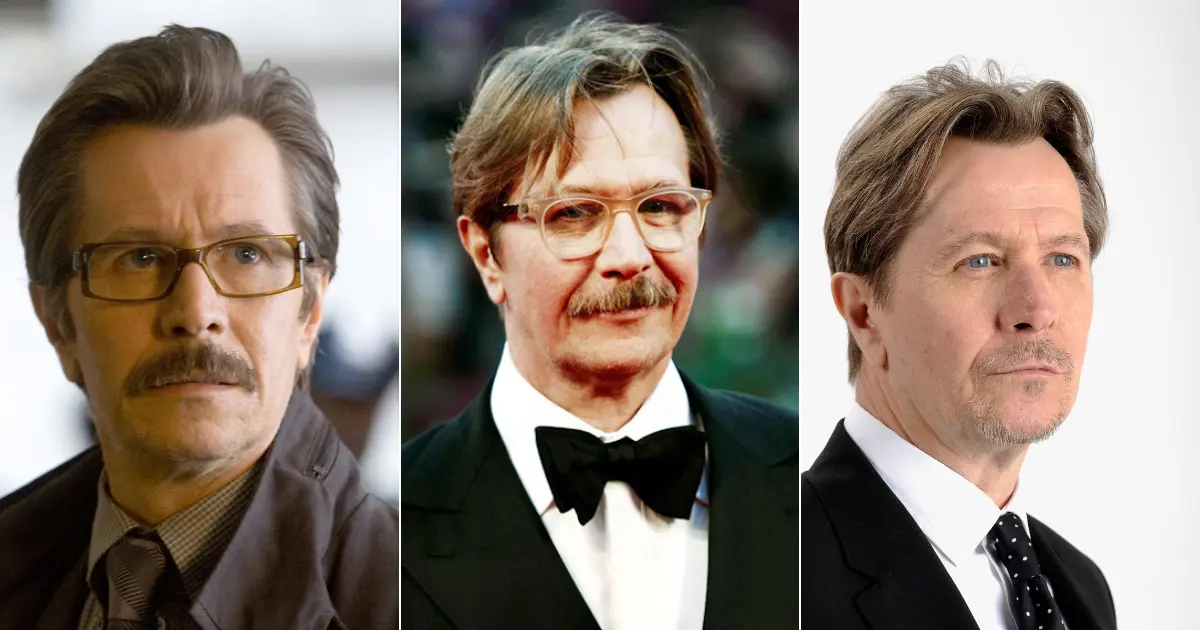Gary Oldman, a chameleon of an actor renowned for his transformative roles and undeniable talent, has carved a unique niche in the world of cinema. Yet, amidst the accolades and critical acclaim, a lingering question persists: Why do some people harbor negative sentiments towards this celebrated performer?
This article delves into the complexities surrounding Gary Oldman’s public image, exploring various facets that have contributed to his polarizing reception. We will examine his controversial past statements, dissect the impact of his intense on-screen personas, and analyze the role of subjective interpretation in shaping public opinion.
Controversial Past Remarks
Gary Oldman has faced criticism for past remarks that have been perceived as offensive or insensitive. Let’s take a closer look at some of these instances.
2014 Playboy Interview
In a 2014 interview with Playboy magazine, Oldman made comments defending Mel Gibson and Alec Baldwin, who had been embroiled in controversies related to anti-Semitic and homophobic remarks. Oldman’s defense, which included using derogatory language, drew significant backlash and accusations of enabling prejudice.
#MeToo Movement Comments
During the height of the #MeToo movement, Oldman expressed concerns about the potential for “witch hunts” and the presumption of guilt before due process. These remarks, though intended to highlight the importance of fairness, were perceived by some as dismissive of victims’ experiences.
Impact on Public Perception
Oldman’s controversial statements have undoubtedly contributed to negative perceptions among certain segments of the public. They have raised questions about his personal values and judgment, casting a shadow over his otherwise illustrious career.
Intense On-Screen Personas
Gary Oldman is renowned for his ability to immerse himself in challenging and often morally ambiguous roles. While this dedication has earned him critical acclaim, it has also led some viewers to associate him with the darker characters he portrays.
Villainous Roles
Oldman has masterfully embodied a range of villains, from the menacing Dracula in “Bram Stoker’s Dracula” to the ruthless Stansfield in “Léon: The Professional.” These portrayals, though captivating, have left a lasting impression on audiences, blurring the lines between actor and character.
Impact on Public Perception
The intensity of Oldman’s on-screen personas can create a sense of unease or discomfort among some viewers. This can lead to a negative association with the actor himself, even if it is unintentional.
Subjective Interpretation
Public perception is inherently subjective, shaped by individual experiences, biases, and cultural contexts. Gary Oldman’s work, with its complex characters and challenging themes, is particularly susceptible to diverse interpretations.
Artistic Expression vs. Personal Beliefs
It is crucial to distinguish between an actor’s artistic expression and their personal beliefs. While Oldman’s portrayals may delve into morally gray areas, this does not necessarily reflect his own values or worldview.
Impact on Public Perception
The subjective nature of interpretation means that different viewers will respond to Gary Oldman’s work in vastly different ways. Some may admire his versatility and commitment, while others may find his choices unsettling or offensive.
Additional Factors
In addition to the factors discussed above, there may be other contributing elements to the mixed public perception of Gary Oldman.
Media Portrayal
The media plays a significant role in shaping public opinion. Negative coverage of Oldman’s controversies or selective focus on his darker roles can reinforce negative perceptions.
Social Media Amplification
Social media platforms can amplify both positive and negative sentiments, contributing to the polarization of public opinion. Online discussions about Oldman’s work and personal life can quickly escalate, further shaping his image.
Generational Differences
Different generations may have varying perspectives on Gary Oldman’s career and controversies. Younger audiences, less familiar with his earlier work, may be more influenced by recent events and online discourse.
Conclusion
The reasons behind the mixed public perception of Gary Oldman are multifaceted and complex. His controversial past remarks, intense on-screen personas, and the subjective nature of interpretation all play a role in shaping his image.
While some admire his talent and versatility, others find his choices unsettling or offensive. Ultimately, public opinion is a dynamic and ever-evolving entity, influenced by a multitude of factors.
Gary Oldman’s legacy as an actor is undeniable. His ability to transform and embody complex characters has earned him a place among the greats. However, his polarizing reputation serves as a reminder that even the most celebrated artists are not immune to scrutiny and criticism.
FAQs
Why is Gary Oldman considered a controversial figure?
Gary Oldman has faced criticism for past remarks that have been perceived as offensive or insensitive, particularly regarding issues of prejudice and the #MeToo movement.
Has Gary Oldman apologized for his controversial statements?
Yes, Oldman has apologized for his past remarks, acknowledging their hurtful nature and expressing remorse for any offense caused.
Do Gary Oldman’s on-screen roles reflect his personal beliefs?
No, it is important to distinguish between an actor’s artistic expression and their personal beliefs. Oldman’s portrayals, even of morally ambiguous characters, do not necessarily reflect his own values.
How has the media influenced public perception of Gary Oldman?
The media plays a significant role in shaping public opinion. Negative coverage of Oldman’s controversies or selective focus on his darker roles can reinforce negative perceptions.
Is Gary Oldman’s career affected by his mixed public image?
While Oldman’s mixed public image may influence some viewers’ perceptions, his talent and contributions to cinema remain widely recognized. He continues to receive critical acclaim and secure roles in major productions.
Remember, public perception is a complex and ever-evolving phenomenon. Gary Oldman’s story serves as a reminder that even the most celebrated figures are subject to scrutiny and diverse interpretations.
